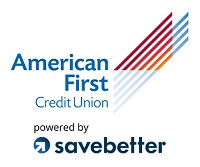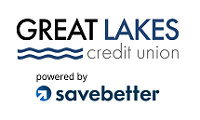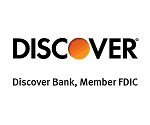My first bank account was at a credit union, where checking and savings accounts had funny names like “share” and “share draft.”
It was at that credit union that I learned of a third kind of account – the money market account.
I remember seeing it listed on the board, which was one of those cloth boards that had the white plastic letters, and I had no idea what a “money market” was. In my mind, I pictured a dusty marketplace where there were fancy vendors were buying and selling money. In reality, I wasn’t that far off though the markets aren’t nearly as interesting.
In short, money market accounts are less flexible than checking accounts but more flexible than savings accounts, which is why they offer an interest rate that is higher than a checking account but often lower than a savings account. We delve into this more at the end of the article if you really want to know the differences.
What should you look for in a money market account? Pretty much the same as a savings account. You want a high-interest rate with low or no minimum balance, no monthly maintenance or service fee, and a reasonable excessive transaction fee (if you exceed 6 transactions a month, per Regulation D).
We will outline a few of the best money market accounts available today, with updated rates as they change.
Table of Contents
American First Credit Union, Patriot Bank, Lemmata Savings Bank, Great Lakes Credit Union, and mph.bank offer high rates through the Raisin platform (formerly known as SaveBetter). With Raisin, you open an account with Raisin and get the higher rate through them. Your account is managed through Raisin but the funds are still at the bank and get FDIC insurance. You don’t get an account number at the bank though, it’s all grouped together with other Raisin customers, but it’s still insured and protected. The benefit is that you get higher rates and can easily move it between partner banks to get even higher rates. Raisin negotiates these higher rates because they can get deposits for the bank much cheaper than their own marketing efforts.
Learn more about how Raisin works
American First Credit Union – 5.24% APY

Unless you live in the Los Angeles, CA area, you’ve probably never heard of American First Credit Union. They’re a small credit union with four branches but one of the highest interest rates available for a money market account – currently sitting at 5.24% APY.
They also offer a 12-month CD for 4.50% APY – all on the Raisin platform.
They are FDIC insured so your funds are protected and there is a minimum opening deposit of just $1.
Lemmata Savings Bank – 5.03% APY
Lemmata Savings Bank offers a money market account through the Raisin platform and the current rate on that account is a market-leading 5.03% APY, barely edging out Great Lakes Credit Union right below.
Lemmata Savings Bank is headquartered in New York and FDIC insured. Interest is compounded daily and credited on the last day of each month. There are no fees and the minimum opening deposit is just $1.
👉 Learn more about Lemmata Savings Bank
Great Lakes Credit Union – 5.00% APY

Great Lakes Credit Union has a money market account through the Raisin platform and it offers a market leading 5.00% APY. Based out of northern Illinois, they are available to all customers because you get it through Raisin.
As a credit union, you are protected by NCUA insurance. There are no fees and a $1 minimum to open.
👉 Learn more about Great Lakes Credit Union
mph.bank – 4.70% APY

mph.bank is a digital bank that is part of Liberty Savings Bank so your funds are FDIC insured. They offer a money market deposit account with a market leading 4.70% APY through the Raisin platform.
The interest compounds daily and credit each month and the minimum opening deposit is just $1.
They currently offer a bonus promotion the mph.bank checking account so be sure to check that out if you’d like to earn some cash.
Discover Bank – 4.00% APY – 4.05% APY

You probably know Discover mostly for their credit cards but Discover® Bank has some of the most competitive rates for banking products too. They currently offer a tiered rate where you can get 4.00% APY on balances under $100,000 on the Money Market account and 4.05% APY on balances over $100,000 for the Money Market Jumbo account.
There is no minimum balance, no monthly maintenance fee and there are very few additional fees.
👉 Learn more about Discover Bank
Ally Bank – 4.20% APY

I’m a big fan of Ally Bank, it’s the hub of my financial map, and where I keep my savings.
With a brick and mortar bank, you expect the money market account to have a higher interest rate than a savings account. With many online accounts, this isn’t always the case.
With Ally Bank, their money market account offers a lower interest rate than their savings account. As of April 2024, the MMA offers 4.20% APY – 4.20% APY while the online savings account is higher at 4.20% APY. Both accounts are similar in having no maintenance fees and remote deposit, the only difference is that you can get unlimited deposits and ATM withdrawals on the account.
(read our full review of Ally Bank)
CIT Bank – 1.55% APY

CIT Bank has one of the highest money market rates available and requires just $100 to open. What gets them to the top spot isn’t just their rate – they pay this rate on all balances. As you’ll see in the rates below, many require you to have a sizable balance before you get the top rate.
With a minimum opening balance of $100, CIT Bank offers a money market rate that is accessible to even the most modest of savers. With no monthly fees, CIT Bank easily snags our top spot for the best money market accounts.
Money Market Account vs. Savings Account
A money market account is a hybrid account that’s very similar to a savings account but also offers limited check-writing ability. If you think about the differences between checking and savings account, you’re often trading a higher interest rate for access.
Checking accounts have a lower interest rate but you can write checks, withdraw money, and transact on the account as often as you need.
Savings accounts have a higher interest rate but you’re limited by Regulation D to six transactions a month. Online savings accounts are savings accounts at online banks but they often have MUCH higher interest rates (and other great perks).
On a checking account, the bank has to hold a higher percentage of your balance in their coffers. They are able to lend out more of your savings account balance because it’s less flexible. The tradeoff is that they pay you more because they can lend more of it out.
The “money market” is part of the overall financial market that deals with short-term borrowing and lending. Your money market account earns the interest rates within the money markets, which is often higher than savings accounts, but it’s going to be less than 12-month CDs (which are a component of the money market).
Before high-interest savings accounts, money market accounts were the only way to get a decent interest rate. Major banks pay nothing for savings accounts. As of December 2019, Bank of America currently pays 0.03% APY on a Rewards Savings Account.
Today, online banks have pushed rates higher. As you’ve seen with this list, online money market accounts offer a decent interest rate on FDIC insured funds.



